John 1:1-14
O Jesus Christ, Thy manger is
My paradise at which my soul reclineth.
For there, O Lord, Doth lie the Word
Made flesh for us; here in Thy grace forth shineth.
Paul Gerhard says that Jesus’ manger is our paradise from which grace shines forth. Why is Jesus’ manger our paradise? What does it mean that the Word lies within it or that the Word was made flesh for us? The Word lying in the manger is the eternal Son of God, whom St. John writes, was with God and was God from the beginning, through whom everything that is made was made, who became flesh, that is, was made man. That little baby in the manger, whom we remember today, is the eternal God.
So, what does this mean? Why does Gerhardt call this our paradise? Because the Word-Made-Flesh in the manger opens the gates of heaven to all people. The Word-Made-Flesh in the manger makes our salvation trustworthy and sure. In that manger lies our victory over Satan; our conquest over death. In that manger lies our reconciliation with God, the appeasement for God’s wrath against our sin. In that manger lies our salvation. This is most certainly true.
Why? Why does the Word-Made-Flesh in the manger mean that our salvation is true? Because the eternal Word has joined our camp! In the enemy’s camp, which is the camp of death and hell, stands Satan, that great Goliath, who towers over his victims, that great red dragon with seven heads and ten crowns, whose tail wipes out the lights of heaven. He is an evil foe who has no equal on earth. But now in our camp has entered the Word, who was with God and was God from the beginning. This is an unconquerable Champion. He cannot be defeated. For us fights the Valiant One. This is the fulfillment of God’s promise in the Garden, when he said that the seed of the woman would crush the head of the serpent. (Gen. 3:15) In the manger lies our victory over our strongest enemies. This gives us certainty for salvation.
The Word-Made-Flesh lying in the manger means our salvation is true, because he assumed our flesh. God became a human being! This means that Jesus’ work includes salvation for all people. The Word has assumed our human nature, that is, our flesh and blood, our soul and mind and will. The ancient church father St. Gregory of Nazianzus wrote, “For that which He has not assumed He has not healed; but that which is united to His Godhead is also saved.” This means that Christ has opened the gates of heaven to all who possess a human body, mind, soul, and will. The words, “The Word became flesh” mean that the Son of God has assumed everything that we are. He is like us in every aspect, except without sin (Hebrews 4:15). Jesus took on human flesh to save your human flesh. He forever possesses a human soul to save your human soul. Jesus forever possesses a human mind and will to save your human mind and will. Are you a human? Then the Word-Made-Flesh lying in the manger is your salvation and paradise. The Word-Made-Flesh in the manger means that the Gospel is for everyone.
And this is not only an irrefutable logical syllogism derived from the clear words of Scripture. This is the clear promise of God’s Word. God told Abraham, Isaac, and Jacob that in their seed all nations of the earth would be blessed (Genesis 12:3; 22:18; 26:4; 28:14). Christ has come to save all people. And the Apostle John makes clear that Jesus comes to shed his blood for all peoples, as he says, “He is the propitiation for our sins, and not for ours only, but also for the sins of the whole world.” (1 John 2:2) It is the intention of God that the Word-Made-Flesh lying in the manger win salvation for all people and the fact that the Word became flesh proves that all human flesh find their salvation in him.
The Word-Made-Flesh is the light which enlightens everyone. He comes into the world to shine throughout the whole world. God makes the promise that whoever believes in him will be saved. This again proves that the Gospel is for everyone. For how can God tell you to believe in something that is not true? The Word-Made-Flesh opens the Kingdom of Heaven to everyone. He makes our salvation trustworthy and worthy of full acceptance.
The Word lying in the manger has won salvation for all people, yet that does not mean that all people are saved. The gates of heaven stand open wide, yet that does not mean that everyone enters it. St. John writes, “He was in the world, and the world was made through him, yet the world did not know him. He came to his own, and his own people did not receive him.” (vss. 10-11) The Word became flesh to save all flesh, but not all flesh will receive this salvation.
In order to walk through the open gates of heaven, you must have faith. Faith, as Scripture makes abundantly clear, is not your work. It is a gift from God (Ephesians 2:8-9). Christ has already done all the work for you. Faith is trusting in the objective fact that God has saved you in Christ Jesus. That manger is everyone’s paradise, but if you do not believe it, you don’t possess it. Faith makes all the difference.
This faith can only be acquired through the Gospel, which offers this free salvation through Christ. This is why it is so important that we continue to hear the Gospel and to receive the Sacrament. This is what creates and sustains our faith. This is what draws us to enter those gates, which Christ has opened for us.
St. John says that all who do receive the light, who believe in the name of the Word-Made-Flesh, are given the right to become children of God, not born of blood or the will of the flesh or the will of man, but of God. The eternal Word of God was born of flesh, so that we, who were born of flesh might be born again of the Spirit. It is God’s Holy Spirit, who works through the Gospel, who causes us to be born again as children of God. This is done, most notably, in Baptism, where God’s word and promise is joined to water. And so, the gates of heaven are placed at the font where sinners are baptized. The gates of heaven are placed at the chancel, where the pastor absolves sins. The gates of heaven are placed in the pulpit, where the words of eternal life are preached. The gates of heaven are placed at the Communion rale, where Christ’s body and blood are fed to Christians. And it is faith that brings you through these gates. You receive the benefit of the Gospel in Word and Sacrament through faith. And the benefit is paradise secured by the Word-Made-Flesh.
That stable where Jesus slept in a manger was the most blessed place on earth at that time. There is no place you’d desire more to be. Not because it was beautiful or comfortable or even that Jesus looked different than any other baby. But because in that manger was the Word-Made-Flesh, who opens the gates of heaven for us. And so, it is today, that the most desirous place for us to be is where Christ comes to us in faith, not because they look more splendid than other places, but because through faith we know that here we stand before and enter through the gates of heaven.
Today, we can only enter through these gates through faith, which means that we do not see them with our eyes. Just as only through faith can you recognize Jesus’ manger as your paradise. Yet, the time will come when you will enter these gates with eyes wide open. You’ll see your paradise without the veil and you will spend eternity with the Word-Made-Flesh. But that is only if you enter through the gates through faith today. So, let us recognize our paradise now, so that we may enjoy salvation with our Savior forever.
The world may hold
Her wealth and gold;
But thou, my heart, keep Christ as thy true Treasure.
To Him hold fast
Until at last
A crown be thine and honor in full measure.
Amen.
Merry Christmas! Amen.
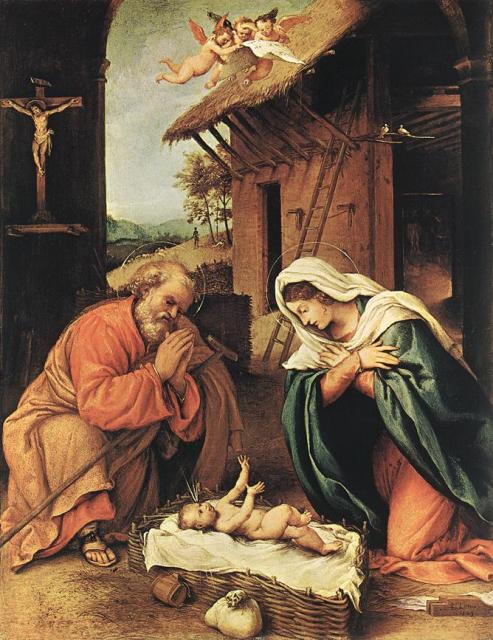
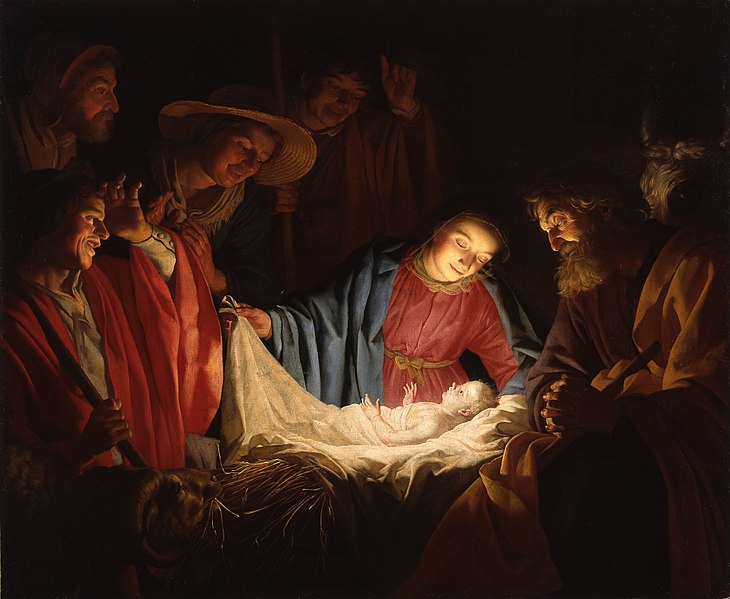
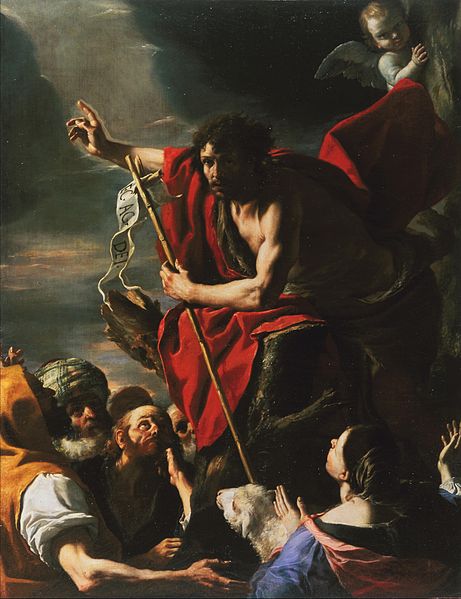
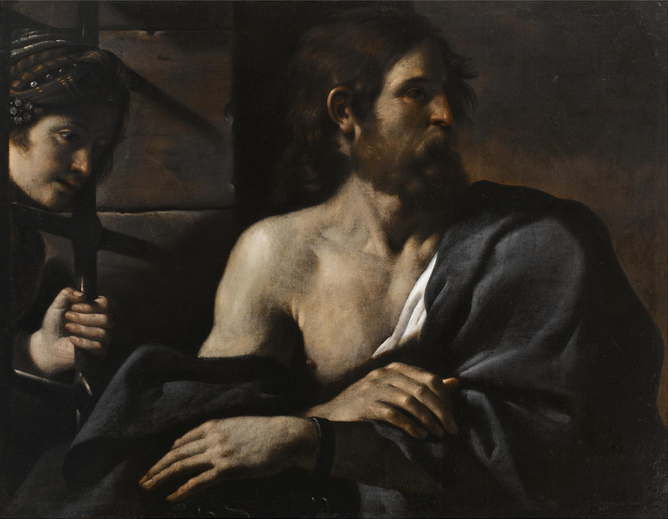
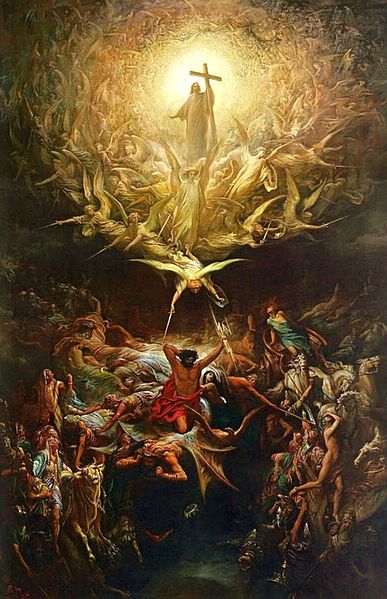
 RSS Feed
RSS Feed